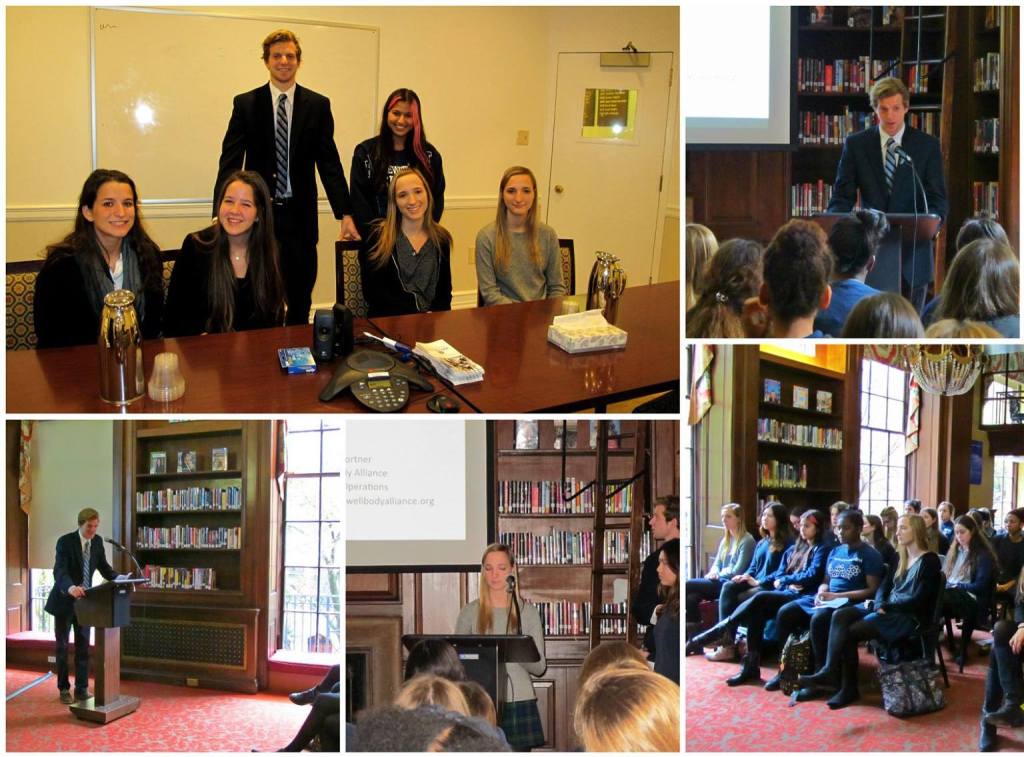Storm Portner works with Wellbody Alliance, an NGO based in the Kono District of Sierra Leone, as a global partnership fellow. Portner, a Princeton University graduate with a major in anthropology and a certificate in global health and health policy, was awarded the Henry Richardson Labouisse ’26 Prize Fellowship in 2014. With the Labouisse fellowship, Portner plans to expand a coordination center to improve the quality of care for mothers and their children. On November 13, Hewitt juniors and seniors had the privilege of listening to a presentation by Mr. Portner and engaging in an insightful Q&A session. The Hewitt Times interviewed Mr. Portner after his talk.
Hewitt Times: Why did you first get involved with global health?
Storm Portner: I’ve always wanted to be a doctor since I was young. I always thought that health care is the greatest gift that you can provide some one. Good health right. I wanted to be a doctor and then I went to Princeton and studied anthropology and took a class called medical anthropology that got me thinking on a global scale. Then, I pursued a certificate in global health and health policy and travelled to Sierra Leone in the summer after junior year. I think after going there I realized that health isn’t really a gift, it’s more of a right. That really changed my mindset about what my role could be and now I’d like to pursue a career in international medicine, but I still want to be a doctor.
HT: How can we level the playing field of accessibility to make health care a human right or to get other people to realize that it is a human right?
SP: it’s all about creating access and finding innovative ways to do that and that does come from funding but it also comes from finding ways to reach populations that are difficult to reach and like I said one way in which we do that is through community health workers going out to rural areas where people are less connected to care and teaching them the importance of care and accompanying them as they go through the healing process. I think that it is very important for organizations to work from the ground up and stay informed about local forms of care and what people want in health care and show those realities to the world in order to gain support.
HT: Can you predict when new cases may stop emerging?
SP:I don’t think anyone can do that. A vaccine will hopefully be developed as early as February. I think though it will be a long time before we see no cases. I think with our rate of efforts, we could see a stop or decline in the spread in the amount of cases. We could see that in the next few months.
HT: How can Sierra Leone, Liberia, and Guinea rebuild their respective countries after a decline in ebola cases?
SP: I think that’s what’s important about this epidemic. Not just to respond to ebola but to build up health systems that will not only fight ebola but will still be there after it is gone and then can be used to fight all diseases. Most of which have been of greater burden on people than ebola.
HT: Do you think that the UN should play a larger role in curbing this outbreak?
SP: The UN is playing a pretty big role. UNICEF is playing a big role. They bring countries together. They globalize this problem and I think they have done a decent job palying a role. They are more of a coordinating body than an implementing one.
HT: Did something particular stand out to you or surprise you when you were in Sierra Leone?
SP: The most powerful thing that came out of my experience there was interacting with people different from you. That doesn’t even mean a culture different from your own but anyone with a different outlook or mindset. These difference, you shouldn’t judge them but you should just receive them the way they are and you should learn from them and learn why we think differently. Use that and reflect upon yourselves and your own ways of perceiving and making judgments. Anthropology does that and that’s why I love it. It’s powerful in that it can change how you think day in and day out not just in an academic setting.
HT: Do you any advice for some students looking to study medicine or to work on a global scale?
SP: If you want to work on a global scale, you need to go to a country before you even make that decision. Go to a region that you’re interested in working in or go to a culture very different from your own. Do that first before committing to that. Work hard, study hard, it’s a long journey. I’m only half way through myself.
